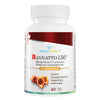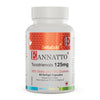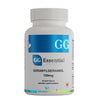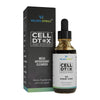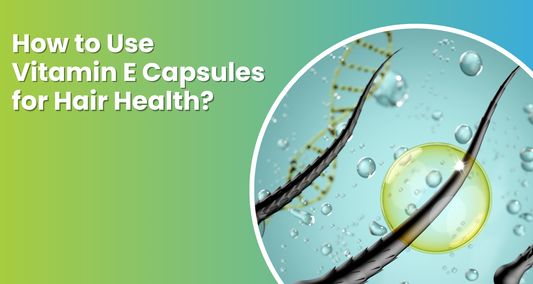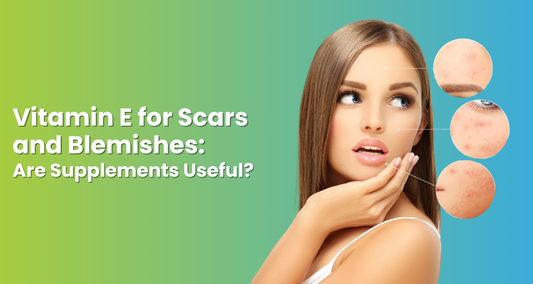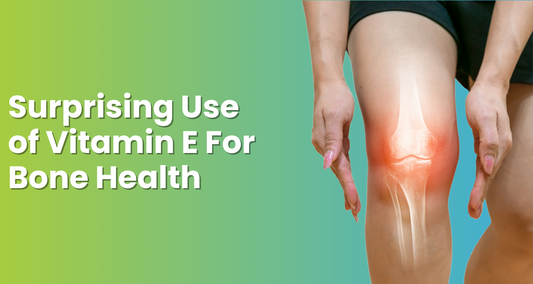Did you know that Vitamin E is a powerful antioxidant that can help fight off the damaging effects of free radicals in your body? With its numerous health benefits, this essential nutrient is not only good for you but also vital for your overall well-being.
In this article, we will explore what is Vitamin E good for and the various ways Vitamin E can enhance your health and uncover the surprising ways it can improve your skin, hair, immune system, and even your eyesight.
From natural food sources to supplements and lesser-known forms, we will delve into the world of Vitamin E and discover its immense potential. So, join us and explore what is Vitamin E good for and uncover its remarkable benefits.
Key Takeaways:
- What is Vitamin E good for? Vitamin E is a powerful antioxidant that can combat the harmful effects of free radicals in the body.
- Vitamin E plays a crucial role in promoting healthy skin, hair, and eyesight.
- It also supports and strengthens the immune system, especially during times of illness or stress.
- Natural sources of Vitamin E include foods like nuts, seeds, spinach, and avocado.
- Supplements can be used to meet the daily requirements of Vitamin E, with recommended dosages varying for different age groups and conditions.
Boosting Skin and Hair Vitality
When it comes to maintaining healthy skin and lustrous hair, Vitamin E is your secret weapon. This essential nutrient possesses rejuvenating properties that can significantly enhance the vitality and appearance of your skin and hair.
Vitamin E is a powerful antioxidant that helps protect your skin and hair from the damage caused by free radicals. It neutralizes these harmful molecules, reducing oxidative stress and minimizing the signs of aging.
One of the key benefits of Vitamin E for the skin is its ability to moisturize and nourish. It helps to strengthen the skin barrier, locking in moisture and preventing dryness. This can lead to softer, smoother, and more supple skin.
Vitamin E also plays a crucial role in promoting healthy hair growth. It improves blood circulation to the scalp, ensuring that hair follicles receive an adequate supply of nutrients. This can result in stronger, thicker hair that is less prone to breakage.
In addition, Vitamin E has been found to support scalp health by reducing inflammation and improving scalp circulation. This can help combat dandruff and other scalp conditions that may hinder hair growth.
Topical application of Vitamin E can further enhance its benefits for the skin and hair. Incorporating Vitamin E-rich products into your skincare and haircare routine can provide targeted nourishment and protection.
To harness the rejuvenating power of Vitamin E, look for skincare products and hair treatments that contain this nutrient. Additionally, consuming a balanced diet that includes foods rich in Vitamin E can help support your skin and hair health from within.
In the next section, we will explore how Vitamin E supports your immune system and helps strengthen your body's defenses.
Supporting Your Immune System
In times of illness or stress, it is essential to have a strong immune system that can effectively defend your body against harmful pathogens. Vitamin E plays a crucial role in supporting and strengthening your immune system, making it an important nutrient to include in your daily diet.
One of the key functions of Vitamin E is its antioxidant activity. Antioxidants help protect your cells from damage caused by free radicals, which are unstable molecules that can harm your immune system. By neutralizing these free radicals, Vitamin E helps to maintain the integrity and function of immune cells, enabling them to better combat infections.
Vitamin E also plays a role in regulating the production of immune cells called T cells, which are responsible for identifying and destroying harmful invaders in your body. By promoting the development and function of these T cells, Vitamin E enhances your immune response and helps to keep you healthy.
Key Benefits of Vitamin E for Immune System:
- Enhanced Immune Response: Vitamin E supports the development and function of immune cells, strengthening your immune response to infections and diseases.
- Protection Against Oxidative Stress: As a powerful antioxidant, Vitamin E helps protect immune cells from damage caused by free radicals, improving their overall effectiveness.
- Reduced Inflammation: Vitamin E helps to modulate the inflammatory response, preventing excessive inflammation that can harm your immune system.
To incorporate Vitamin E into your diet, include foods such as almonds, spinach, broccoli, sunflower seeds, and avocados. These natural sources of Vitamin E provide a range of other beneficial nutrients as well.
However, if you have difficulty meeting your daily Vitamin E requirements through your diet alone, you may consider Vitamin E supplements after consulting with your healthcare professional.
By prioritizing your immune health and ensuring an adequate intake of Vitamin E, you can strengthen your body's defense mechanism and enhance your overall well-being.
Enhancing Eyesight
Vitamin E plays a significant role in maintaining good eyesight and preventing age-related vision problems. It is a powerful antioxidant that helps protect the cells in our eyes from damage caused by free radicals.
One of the main benefits of Vitamin E for eyes is its ability to combat oxidative stress, which can lead to the development of various eye condition.
Additionally, Vitamin E promotes healthy flow to the eyes, ensuring they receive an adequate supply of nutrients and oxygen. It also supports the production of tears and helps prevent dry eyes, a common condition that can cause discomfort and affect visual clarity.
Benefits of Vitamin E for Eyes:
- Protects against oxidative stress
- Reduces the risk of age-related macular degeneration (AMD)
- Supports healthy blood flow to the eyes
- Prevents dry eyes
Include Vitamin E-rich foods such as almonds, spinach, sunflower seeds, and avocados in your diet to help maintain optimal eye health.
Natural Sources of Vitamin E
When it comes to incorporating Vitamin E into your diet, there are plenty of natural sources to choose from. Including these foods in your meals can help you reap the benefits of this essential vitamin. Here are some of the top natural sources of Vitamin E:
1. Almonds
These crunchy nuts are not only delicious but also packed with Vitamin E. Snack on a handful of almonds to boost your daily intake of this essential nutrient.
2. Spinach
Packed with various vitamins and minerals, spinach is an excellent source of Vitamin E. Add it to your salads, smoothies, or sautés for a healthy dose of this antioxidant vitamin.
3. Sunflower Seeds
Sprinkle sunflower seeds on top of your salads or blend them into your smoothies for a nutty and nutritious kick of Vitamin E.
4. Avocado
Avocado not only brings a creamy texture to your dishes but is also a rich source of Vitamin E. Enjoy it on toast, in salads, or as a guacamole dip.
5. Wheat Germ
Wheat germ is the nutrient-rich part of the wheat kernel and is a concentrated source of Vitamin E. Incorporate it into your baked goods, oatmeal, or smoothies to boost your Vitamin E intake.
6. Olive Oil
Swap your regular cooking oil with heart-healthy olive oil to elevate your intake of Vitamin E. Use it for sautéing, or salad dressings, or drizzle it over roasted vegetables.
7. Kiwi
Not only is kiwi packed with Vitamin C, but it also contains a good amount of Vitamin E. Enjoy it as a refreshing snack or add it to smoothies and fruit salads.
- Other natural sources of Vitamin E include:
- Broccoli
- Red Bell Peppers
- Tomatoes
- Mango
- Hazelnuts
- Peanuts
Incorporating a variety of these natural sources of Vitamin E into your diet can help ensure you meet your daily requirements and enjoy the numerous health benefits that this essential vitamin provides.
Vitamin E Supplements - Dosage and Recommendations
Incorporating vitamin E supplements into your daily routine can help ensure that you meet your recommended vitamin E intake. These supplements are a convenient and reliable way to supplement your diet and provide your body with the necessary amount of this essential nutrient.
But what is the recommended dosage for vitamin E supplements?
The recommended dosage of vitamin E supplements can vary based on age, sex, and certain health conditions. It's important to follow the guidelines provided by healthcare professionals or the instructions on the product label. Here's a breakdown of the recommended daily dosage for different age groups:
- Infants (0-6 months): 4 mg
- Infants (7-12 months): 5 mg
- Children (1-3 years): 6 mg
- Children (4-8 years): 7 mg
- Children (9-13 years): 11 mg
- Adolescents (14-18 years): 15 mg
- Adults (19 years and older): 15 mg
- Pregnant women: 15 mg
- Breastfeeding women: 19 mg
It's important to note that these recommended dosages are for healthy individuals. If you have any specific health concerns or conditions, it is always best to consult with a healthcare professional to determine the appropriate dosage for your needs.
In addition to the recommended daily dosage, it is essential to choose high-quality vitamin E supplements from reputable brands to ensure their effectiveness. Opting for natural vitamin E supplements, which are labeled as "d-alpha-tocopherol," is generally considered a better choice due to their higher bioavailability.
Remember, while vitamin E supplements can be beneficial, it's always important to prioritize a balanced diet rich in natural sources of vitamin E for optimal health benefits.
Exploring Tocotrienols and Annatto
In addition to the well-known forms of Vitamin E, such as alpha-tocopherol, there are also other variants that offer unique health benefits. One such form is tocotrienol.
Tocotrienols possess powerful antioxidant properties, similar to tocopherols but with some distinct advantages. Studies suggest that tocotrienols may have a more potent effect in neutralizing free radicals, which can help protect against oxidative stress.
Annatto is a natural source of tocotrienols, derived from the seeds of the Annatto tree. This vibrant red-orange spice is widely used as a food colorant and flavor enhancer in various cuisines. In addition to its culinary uses, annatto is rich in beneficial compounds, including tocotrienols.
To incorporate tocotrienols into your diet, consider adding annatto spice to your dishes or exploring other food sources that contain this lesser-known form of Vitamin E.
Remember, before making any significant changes to your diet or starting any supplements, it's always a good idea to consult with a healthcare professional or a registered dietitian.
Conclusion
In conclusion to what is Vitamin E good for, Vitamin E offers a multitude of health benefits, making it an essential nutrient to incorporate into your daily regimen. So, what is vitamin E good for? Let's recap the key takeaways:
Firstly, vitamin E is known for its ability to boost skin and hair vitality. Its antioxidant properties help protect against free radicals, promoting healthier and more radiant skin while contributing to stronger and shinier hair.
Additionally, vitamin E plays a crucial role in supporting the immune system, especially during times of illness or stress. It helps strengthen immunity, making it an important nutrient to maintain overall well-being.
Furthermore, this vitamin is also beneficial for enhancing eyesight. Its antioxidant properties help protect the eyes from oxidative stress, reducing the risk of age-related vision problems and promoting healthy vision.
It's worth noting that vitamin E can be obtained through natural sources such as nuts, seeds, and leafy greens. Incorporating these foods into your diet can ensure an adequate intake of vitamin E and maximize its health benefits.
Lastly, for individuals who may not be able to consume enough vitamin E through their diet alone, supplements are available. It's important to follow the recommended dosage guidelines for different age groups and conditions to ensure optimal health benefits.
Ultimately what is Vitamin E good for, Vitamin E plays a crucial role in promoting healthy skin and hair, supporting the immune system, enhancing eyesight, and is readily available through natural sources and supplements. Incorporating this essential nutrient into your lifestyle can greatly contribute to your overall well-being.
FAQs
What are the benefits of Vitamin E?
Vitamin E offers numerous health benefits. It is known for its antioxidant properties, which help protect cells from damage caused by free radicals. Vitamin E also plays a crucial role in supporting immune function, promoting healthy skin and hair, enhancing eyesight, and reducing the risk of certain age-related diseases.
How does Vitamin E promote healthy skin and hair?
Vitamin E is often used in skincare and hair care products due to its moisturizing and nourishing effects. It helps reduce skin damage caused by sun exposure and pollutants, and it aids in promoting smooth and healthy hair by preventing oxidative stress.
Can Vitamin E support the immune system?
Yes, Vitamin E is essential for a healthy immune system as it helps regulate the activities of immune cells and enhances their ability to fight off infections and diseases. It also acts as an antioxidant.
How does Vitamin E enhance eyesight?
Vitamin E plays a role in maintaining good eyesight and preventing age-related vision problems. It helps protect the cells of the eyes from oxidative damage and reduces the risk of conditions.
What are some natural food sources of Vitamin E?
Vitamin E can be found in various foods, including nuts (such as almonds and hazelnuts), seeds (such as sunflower seeds and flaxseeds), spinach, broccoli, avocados, and vegetable oils (such as wheat germ oil and sunflower oil).
Are Vitamin E supplements necessary? What is the recommended dosage?
While most people can meet their Vitamin E requirements through a balanced diet, supplements may be beneficial for those with specific health conditions or deficiencies. The recommended daily intake of Vitamin E for adults is 15 mg, but it may vary based on age and individual needs. It is always best to consult a healthcare professional for personalized advice.
What are tocotrienols and annatto?
Tocotrienols are another form of Vitamin E, similar to the more common tocopherols. They have unique health benefits. Annatto, a natural source of tocotrienols, is a plant extract used as a food coloring that also offers antioxidant properties.
